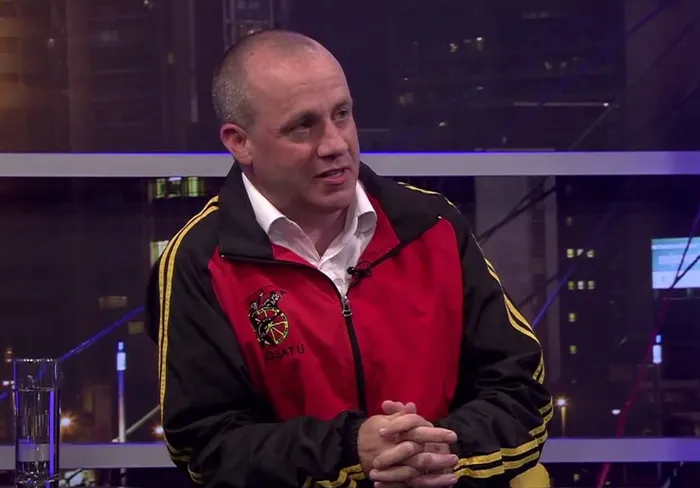Cosatu advocates for NHI

Cosatu spokesperson Matthew Parks said private medical aid was becoming increasingly unaffordable.
Cosatu said that public and private health care in the country is in a crisis and that the National Health Insurance (NHI) was the only solution to the country’s medical woes.
The union was responding to reports of tensions between ANC and DA ministers at a Cabinet meeting last week over the proposed scrapping of medical aids by 2029 as set out in the medium-term development plan (MTDP) target.
The MTDP target calls for the full implementation of the NHI and the dispensing of medical aids – the DA disagrees with the ANC over this target.
President Cyril Ramaphosa signed the NHI Bill into law in May this year with Business Unity South Africa, one of many organisations raising concerns that the act in its current form is not a suitable vehicle to deliver universal health coverage.
Cosatu spokesperson Matthew Parks said private medical aid was becoming increasingly unaffordable and “only about 16% of society can currently afford it”.
“The rest of society depends upon public health care and leave aside the 2029 target, even those who do have medical aid are struggling with expensive premiums.
“People who have medical aid also struggle and right now, the system is broken. Public health care is broken and private health care is broken.”
Parks said it was crucial that medical tariffs be managed, describing hospitalisation costs at private hospitals as astronomical, further impacting members’ medical aid premiums.
“There is a need to add some conditions to the NHI law, but this route is no different to what Sweden, Denmark, Norway and many other countries have done to support universal health care.
“We support NHI wholeheartedly, because public and private health care is in a crisis. Public health care is underfunded and over stretched while private health care is underutilised but too expensive for most people to afford.”
The SACP’s general secretary Solly Mapaila said the government must proceed decisively with the implementation of the NHI.
He said critics of the NHI “are driven by profits and to this end capture of health care and its conversion into a commodity, which they make available only to those who can afford to buy it, thus excluding the vast majority of the workers and poor”.
Michele Clarke, the DA’s spokesperson on health said the party was not against quality public health care but it did not support the NHI law in its current form.
She said that the party’s leader John Steenhuisen had put together a document, with the assistance of academics, which suggests how the NHI structure should be changed in the law. This would be handed over to Ramaphosa soon, she said.
“We need partnerships to be formed between the government and the private sector to uplift health care in the country.”
Clarke said an estimated R2 trillion was needed to implement the NHI and there were shortcomings in the law as it stood.
“There have already been threats of mass litigation and if we do not get what we want in terms of the issues with the law then we will also litigate.
“The medical aids and private sector are willing to work with the government to address the issues with the law
The Mercury
Related Topics: